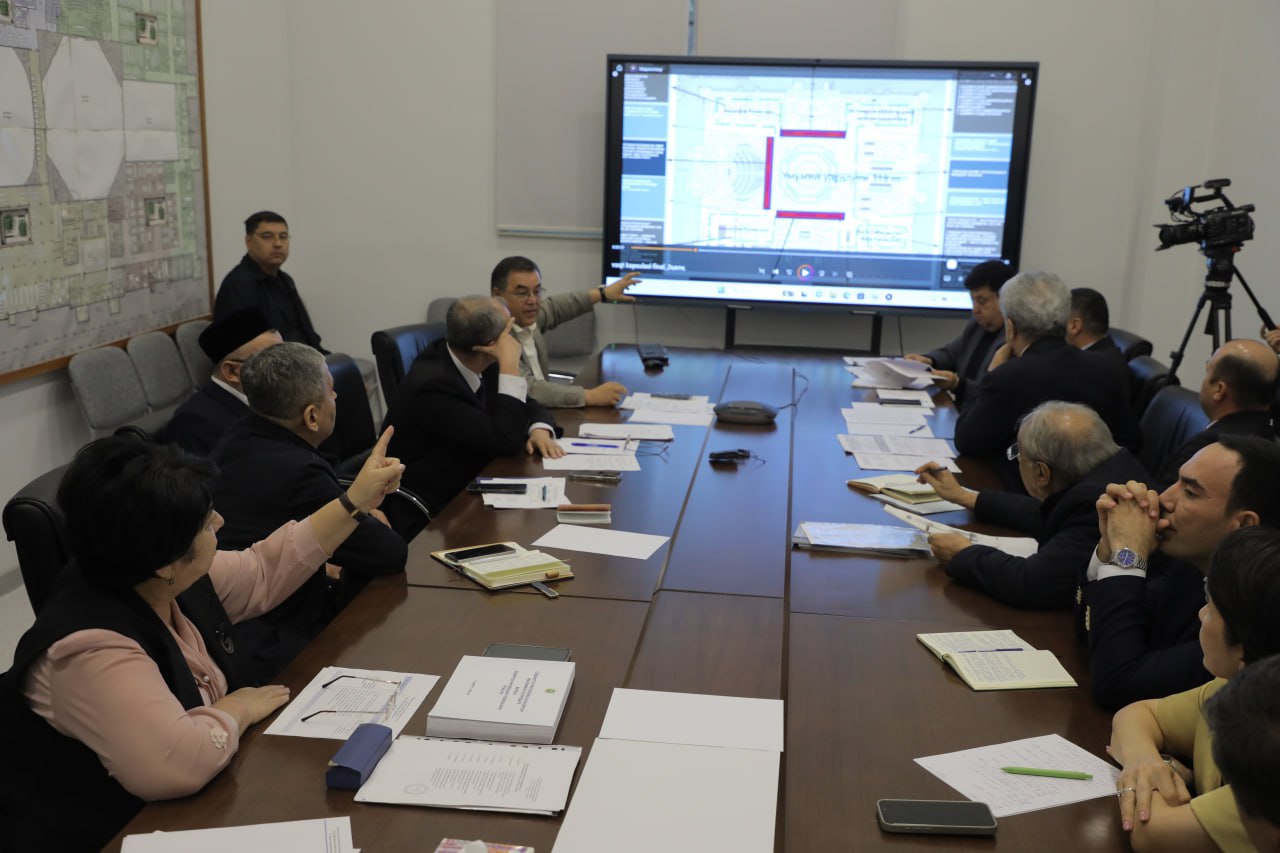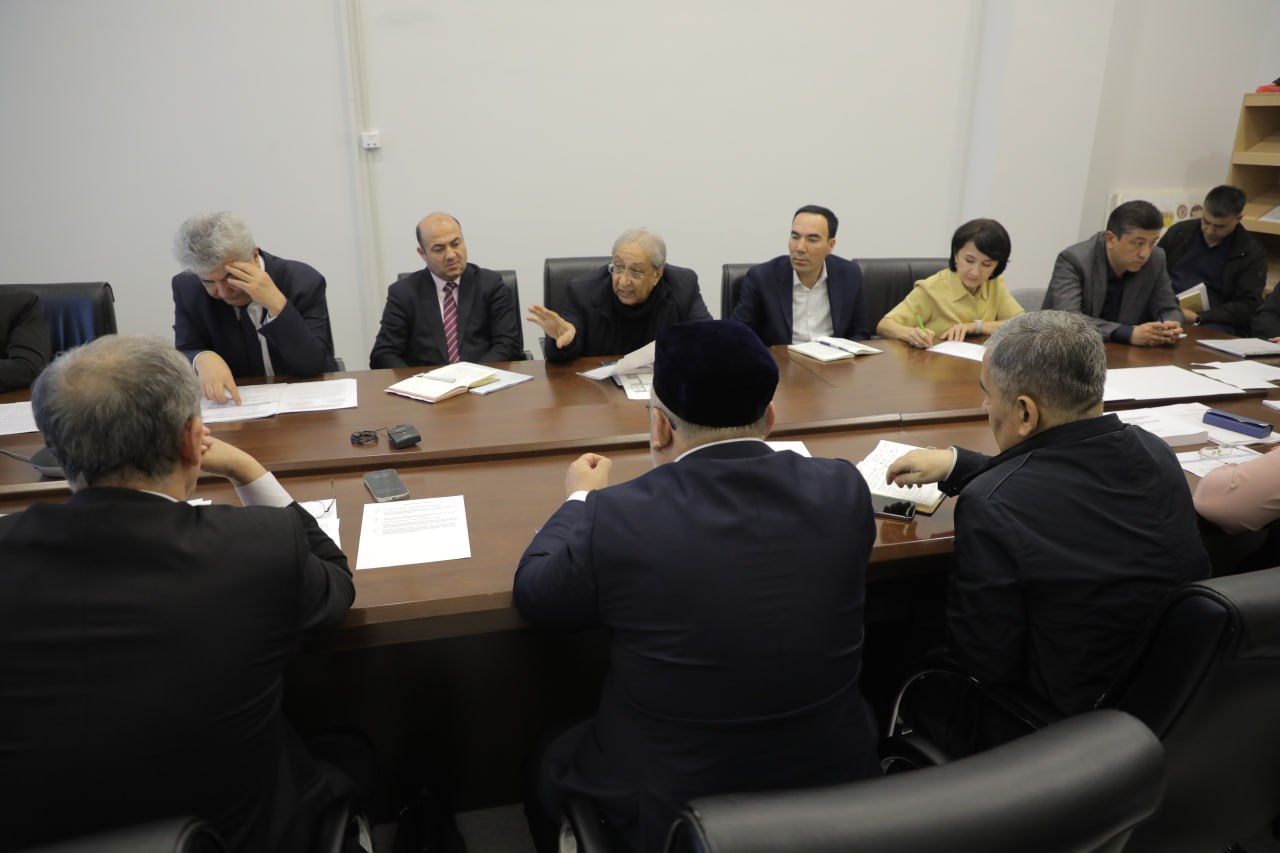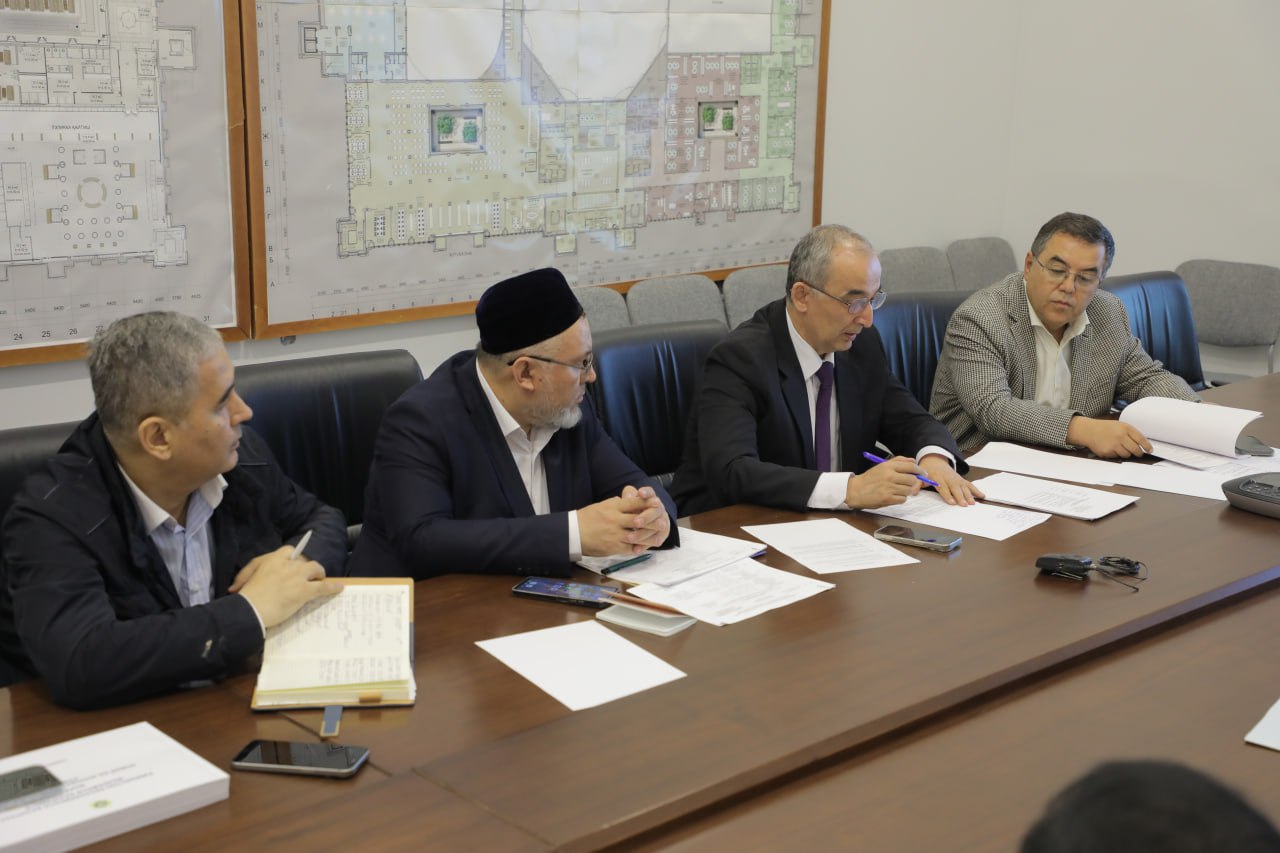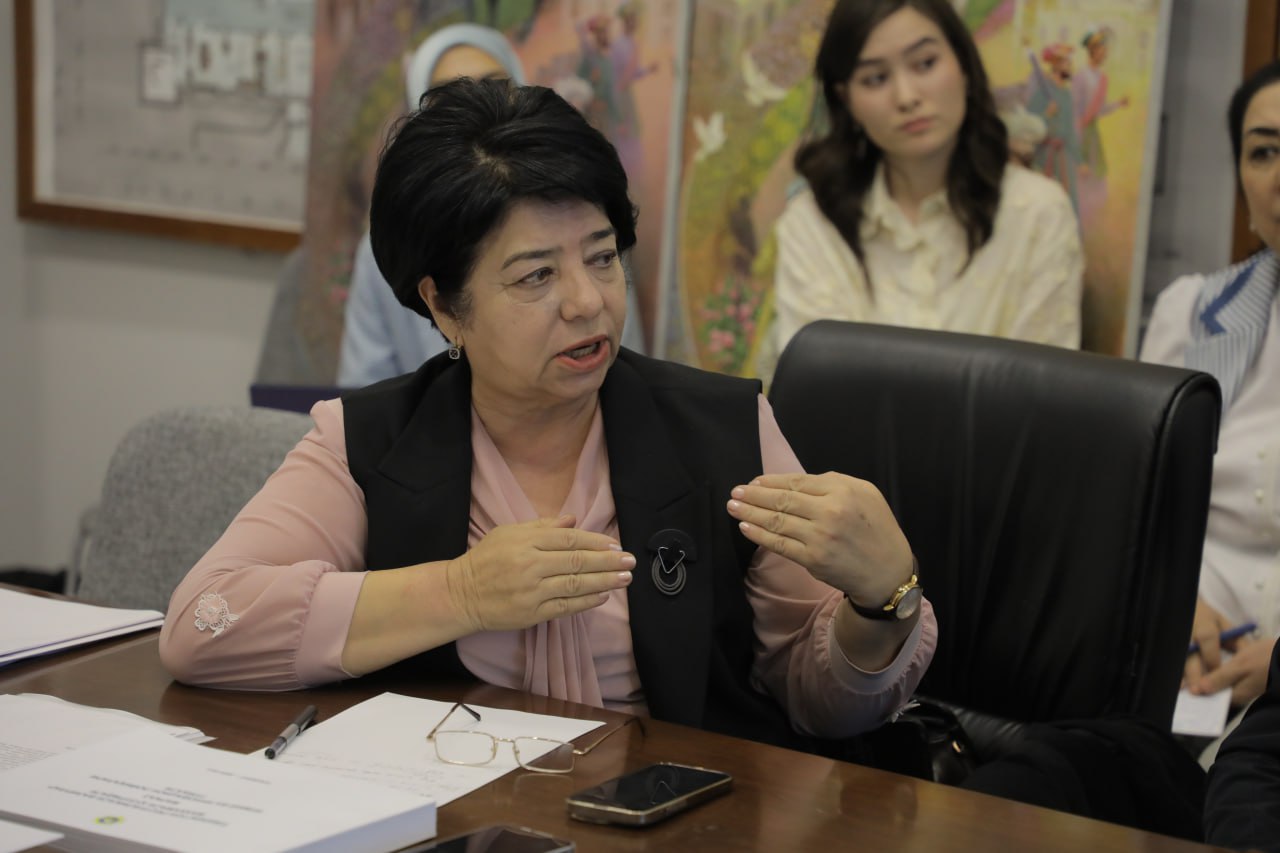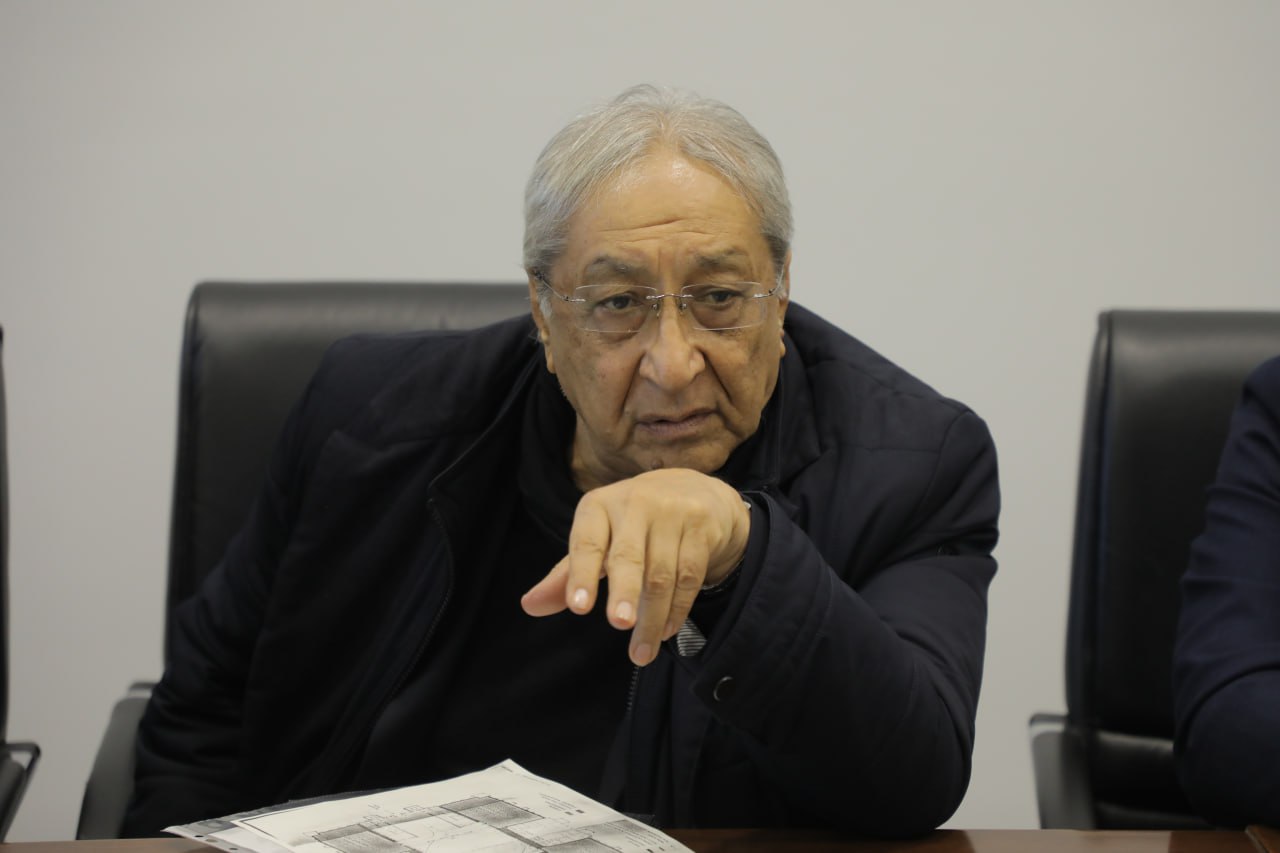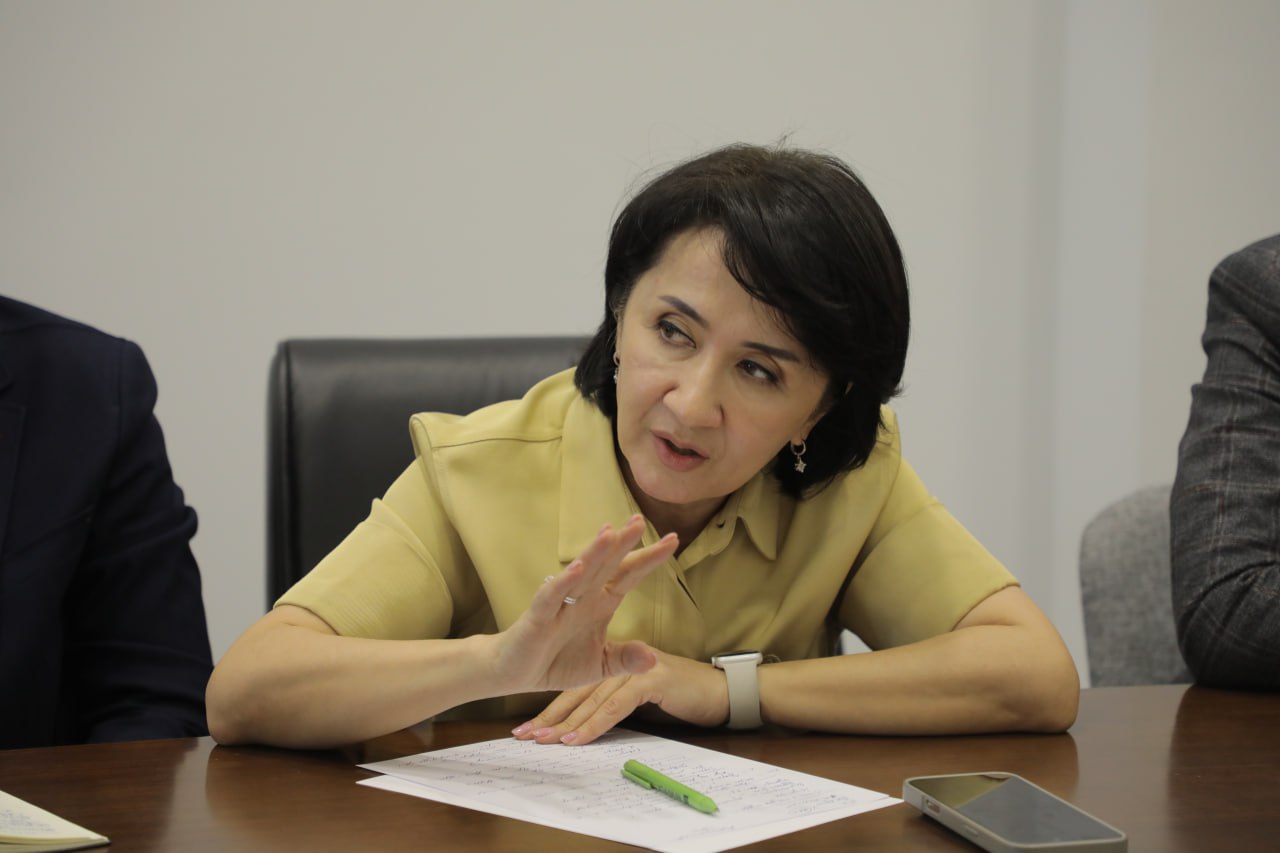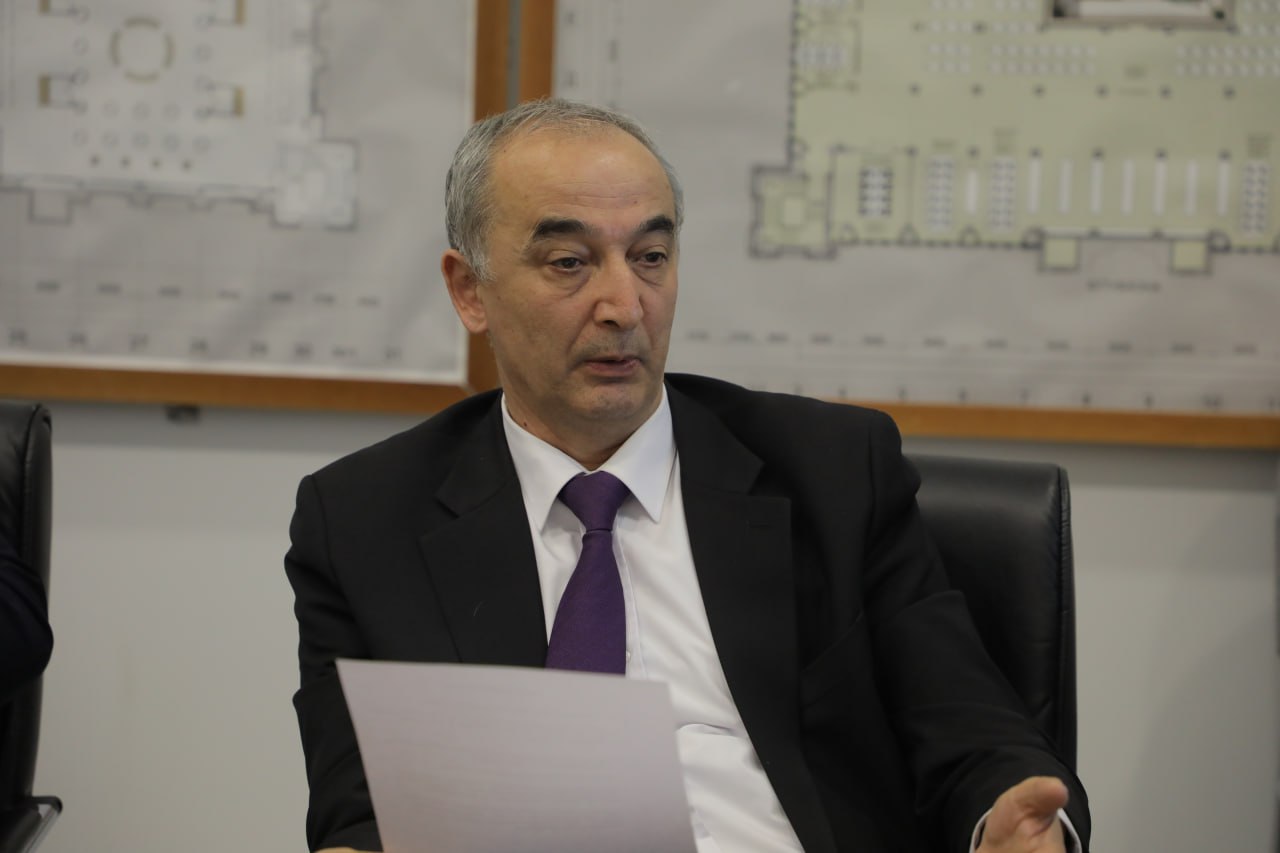Scientific and innovative projects were discussed
A regular meeting of the Scientific Council dedicated to the issues of enriching and improving the exposition of the Center was held at the Center of Islamic Civilization in Uzbekistan. It was attended by leaders and employees of the Committee on Religious Affairs, the Muslim Board of Uzbekistan, the Republican Center for Spirituality and Enlightenment, the State Museum of History of Uzbekistan, the National Library, the Center of Islamic Civilization, academics and professors.
At the meeting, with the participation of the heads of 12 working groups, issues of enriching the exposition with scientific and innovative artifacts, the procedure for their analysis and control were discussed.
Also, during the meeting, an exchange of views took place on the financial incentives for scientists who cooperated in organizing the exposition, and the organization of the Center's library in an interactive way. The members of the working group were tasked with ensuring close interaction between project managers and designers in creating the Center's exposition, paying special attention to the content and chronology of the created creative works.
Bahrom Abduhalimov, Vice-President of the Academy of Sciences of the Republic of Uzbekistan, Director of the Abu Rayhan Beruni Institute of Oriental Studies:
Members of the Academic Council must take responsibility for the progress of the projects and their overall control. If we do not analyze and criticize the work, it may not be effective. We all have one goal - to fulfill the tasks set by the head of our state, to justify the trust placed in us! Therefore, it would be beneficial for scientists, specialists in the field, and responsible persons to work together and exchange ideas.
Umida Teshaboyeva, Director of the National Library of Uzbekistan:
We are working on 26 projects for the Center's library. Of these, 16 are local and 9 are international projects. We plan to complete a certain part of the work by August. Currently, there are no problems with our projects. However, the Center's assistance will be needed in establishing relations with foreign countries and exchanging products with them. It is also necessary to clearly define the necessary equipment and financing processes for the library. In this way, work will continue effectively.
Jannat Ismailova, Director of the State Museum of History of Uzbekistan:
The processes are in full swing. At the same time, we have contacted international partners within the framework of projects and started exchanging ideas. International partners are also showing great interest in the Center's activities. Currently, we are in the process of concluding contracts with them and determining prospective plans.
Firdavs Abdukhalikov, Director of the Center of Islamic Civilization in Uzbekistan:
Systematic work is being carried out within the framework of ensuring the implementation of the instructions given during the visit of our esteemed President to the Center of Islamic Civilization in Uzbekistan on January 29 of this year. This goal is being put forward at today's meeting. Indeed, the Center should become a real megaproject not only with the grandeur of the building, but also with its content, unique exhibits, and rich content. In a word, as the head of our state said, this place should become a perfect center. This center should become the scientific foundation of the Third Renaissance. Today, our main task is to impress everyone who visits the Center with our rich historical heritage, to instill confidence in our great future, and to instill a sense of pride in the younger generation. Our goal is to create a bridge between the past and the future, to explain history to young people in an accessible language. After all, this is the purpose of the President's establishment of this center.
For information, to date, 400 of the more than 600 scientific and innovative works selected for the first stage have been selected, and special groups are being formed under the leadership of scientists and responsible persons to present them for the exposition.
At the end of the meeting, it was noted that a written report on the processes being implemented within the framework of more than 800 projects selected for implementation at the first stage will be provided.
Most read
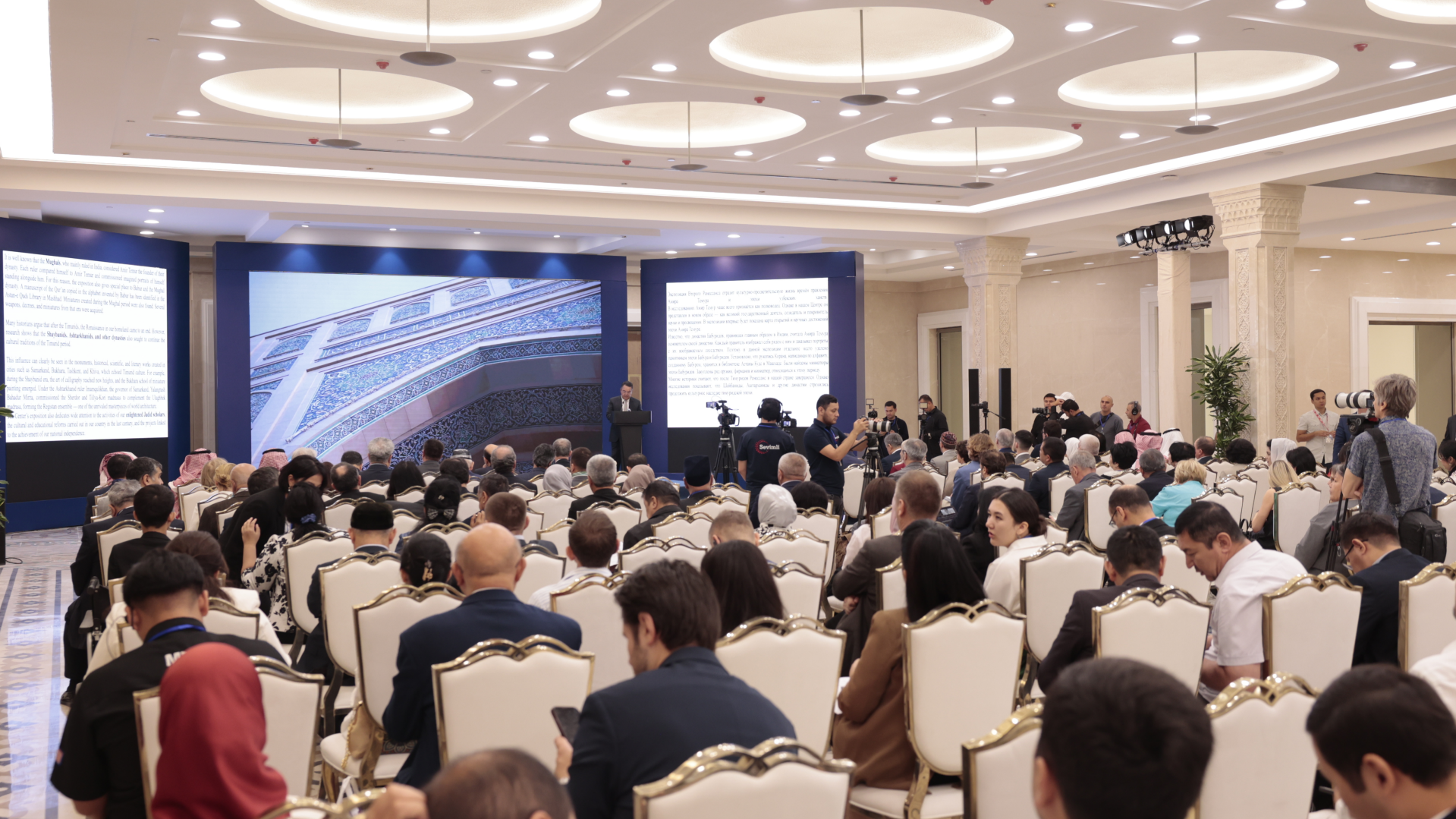
Over 100 experts from more than 20 countries of the world are in Tashkent!
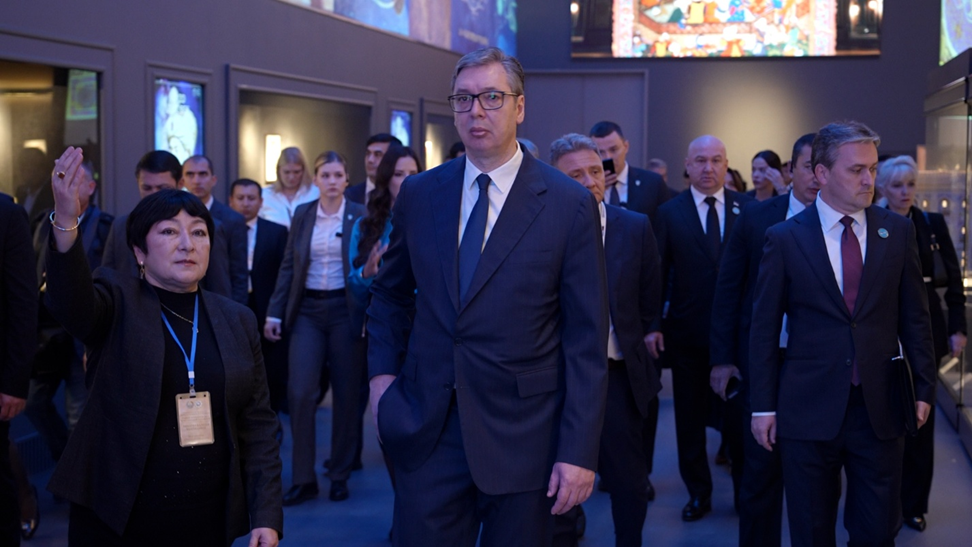
President of Serbia Aleksandar Vučić visited the Islamic Civilization Center in Uzbekistan
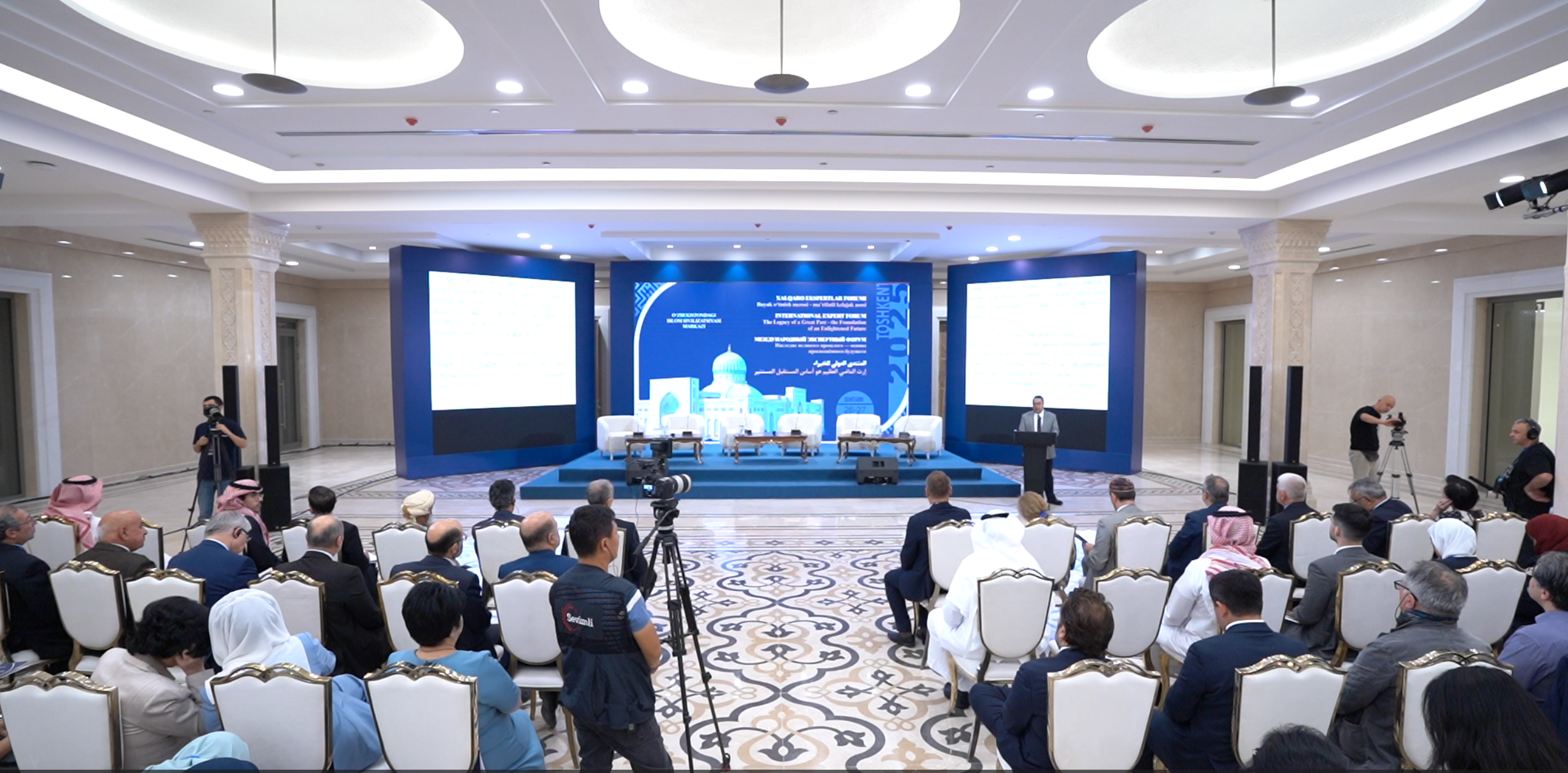
The Center for Islamic Civilization – a global platform leading towards enlightenment












